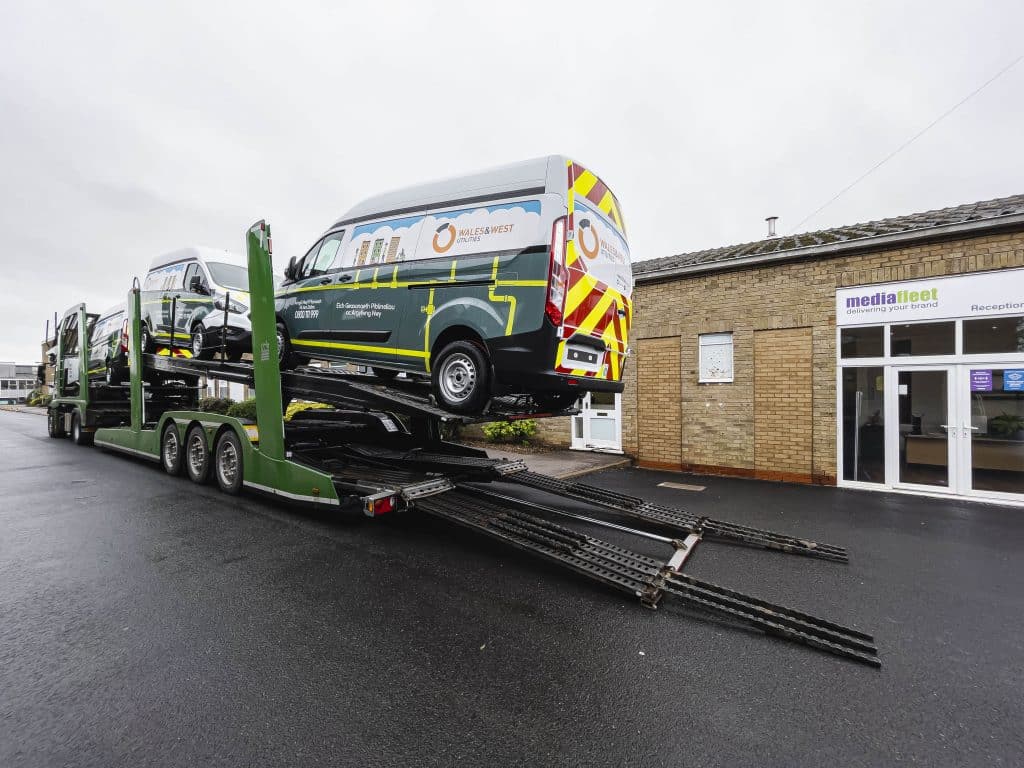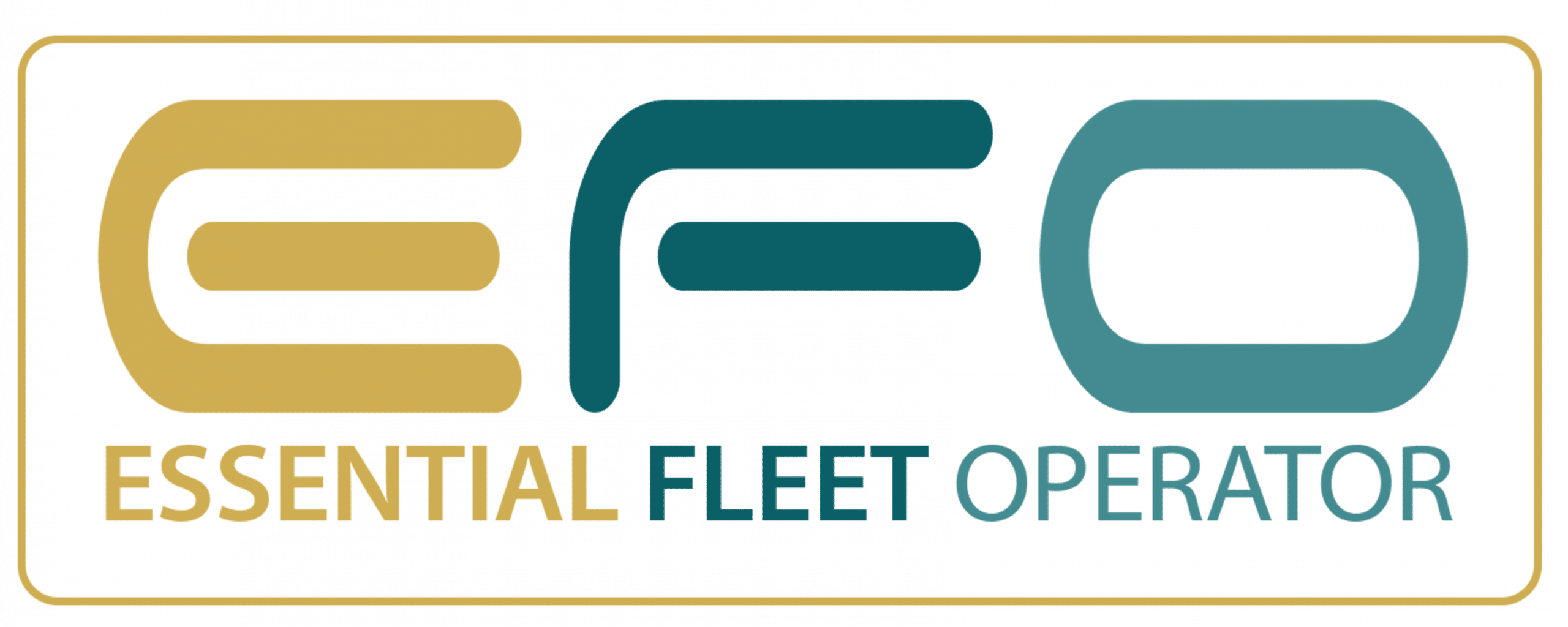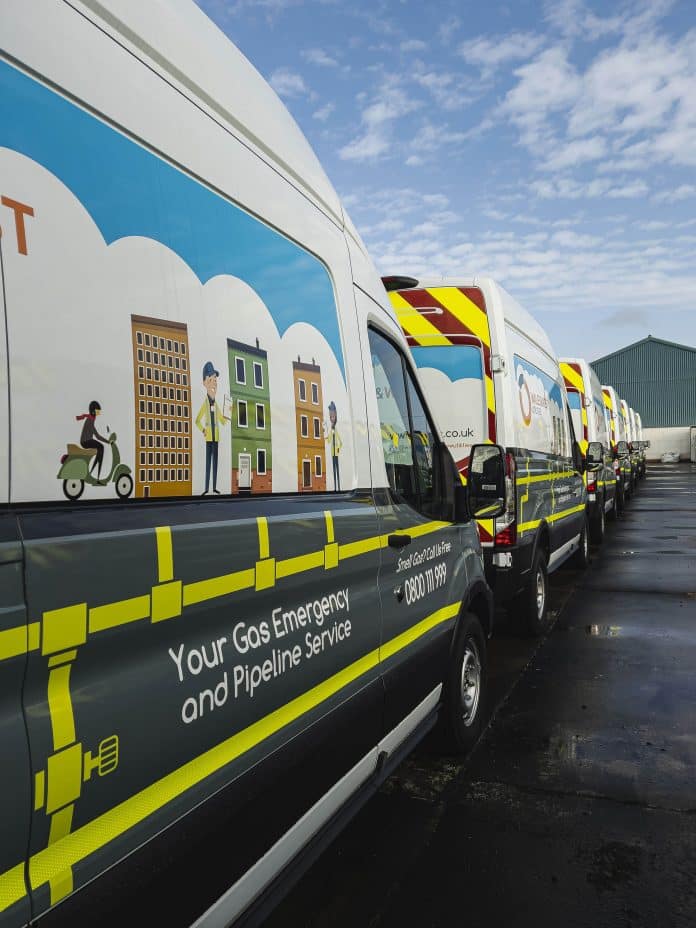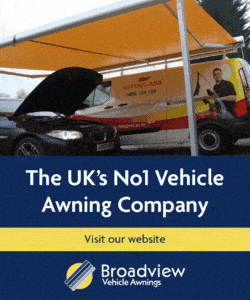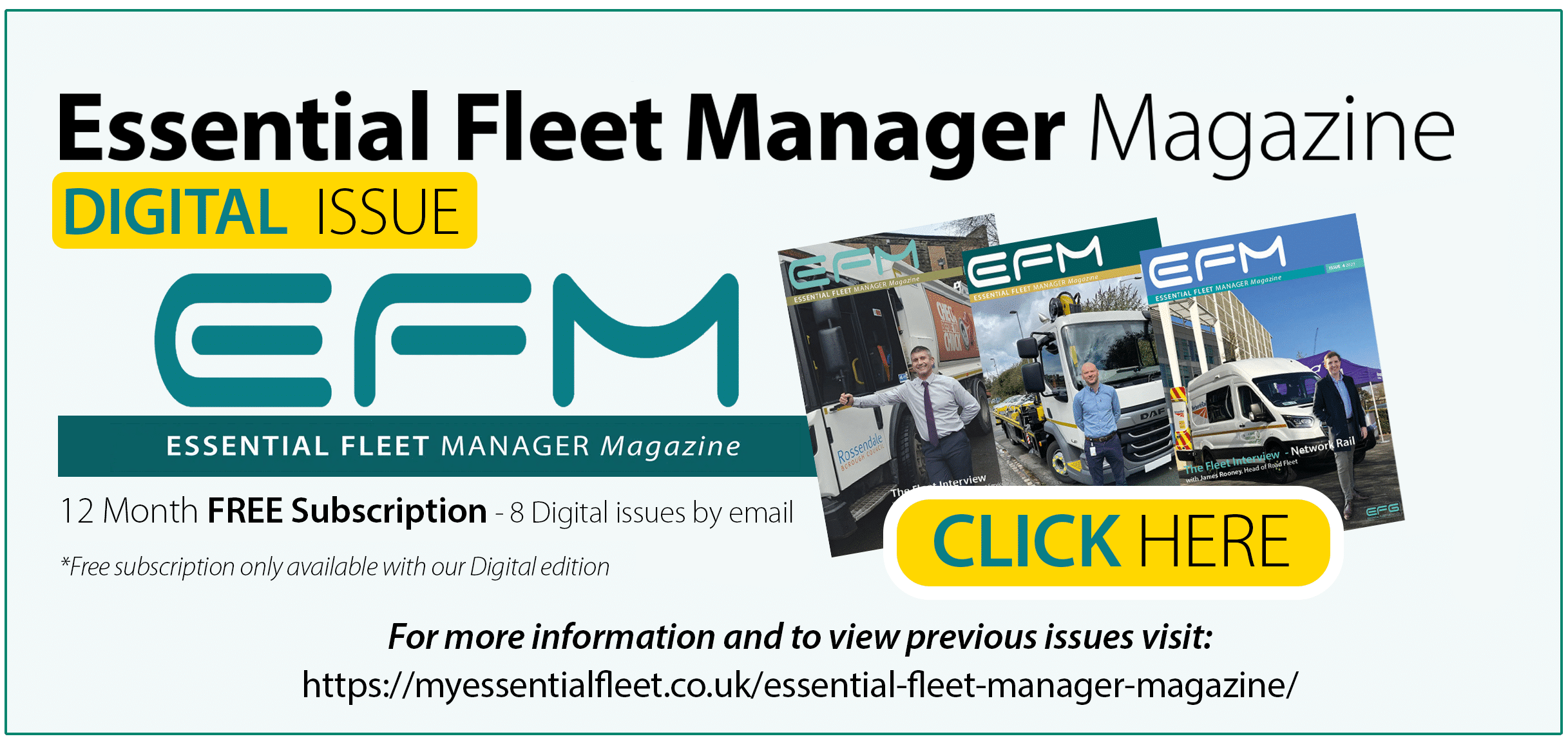Rob Rudd, head of development for Mediafleet Ltd and Andy Gear, sales & marketing director of Modul Systems provide an insight on the recent collaboration for the Wales & West Utilities conversion project.
In March 2020, Modul Systems successfully won the contract for the conversion of 195 vehicles joining the Wales & West Utilities fleet.
Andy Gear: The contact requirements captured the development of standard conversions for a range of vehicles including Ford, Transit, Custom and Ranger with varying operational specifications and ancillary equipment requirements. In addition to our standard racking range Modul-System introduced a number of innovative products that reduced operational weight and reduced in-service risk. In addition, the vehicles required a fairly intricate livery design and partial wrap, together with the appropriate safety markings.
Clearly, it is crucial to select the right livery supply partner for this task. Modul System work hard to deliver a quality and sustainable product that gives our customers on-going confidence that the product is fit for purpose and meets their operational needs. When outsourcing this important element of the conversion we had to ensure that we selected a company that, not only has good intentions and is good at what they do, but mirrored our own customer focussed and agile approach to meeting changing challenges and demands.
By working this way, we can then be sure that the agreed project KPI’s will be consistently met, but in reality, surpassed. To achieve this, we distributed a RFP to a number of livery providers. Price and service levels are of course important, but what is more important is whether the proposed service levels are in line with our own and those of the client’s, Wales & West Utilities. After analysing the responses, we were confident that Mediafleet would operate as an extension of our own production process and structure.
End Users are demanding greater competitiveness from their chosen suppliers meaning most markets are moving towards specialist supply to meet this need.
Rob Rudd: In competitive and developing business environments, in order to enhance their competitiveness, many established supply companies utilise external resources. End-users are demanding more from their prospective suppliers as they themselves need to compete in an increasingly complex competitive environment. Consequently, supply chain organisations need to be able to offer increased specialisms in order to maintain their competitive advantage and retain key customers. Modul Systems, outsourcing the graphics provisioning to Mediafleet, is an example of the contract owner (Modul) identifying the need for service provisioning, which is a mirror image of their own standards, provided by an organisation with a track record of successful business integration.
Andy Gear: This example of outsourced strategy takes advantage of more advanced and/or lower-priced resources yielding greater efficiency, improved quality and innovation thereby bringing strategic advantage to Modul Systems. Mediafleet has a broad base of competencies from design through to graphics application and after sales care. However, these benefits could not be realised if the management processes did not align with those of Modul Systems. This not just at a technical or operational level, but at an instinctive level that generates a desire to get it right first time, every time.
Having the right ingredients for a recipe is no guarantee of a ‘tasty’ meal!
Rob Rudd: Mediafleet is a ‘vehicle graphics solutions provider’ and that’s all we do. But, to put it another way, we are specialists in vehicle graphics provisioning. Some stakeholders in automotive supply selection underestimate the complexities of this discipline. Being able to heat soup does not make you a great cook, just as being able to print vinyl and stick it on a vehicle does not make you a great livery company. There are many intricacies and complexities to successful livery supply and integration within the automotive market. It is only when you have experienced first-hand a class leading supplier do these become more obvious.
Andy Gear: Business management is an example of Mediafleet’s capability. Supply integration is a cross-functional effort. However, business functionality and procedures are diverse and when two organisations come together there is the possibility of conflict over methodology, preferences, expectations, responsibilities, and priorities. One of Mediafleet’s strengths is their ability to adapt seamlessly. When working on joint projects Mediafleet operate as an extension of our production process working together with a common goal which is to fully meet customer expectations and requirements.
Successful project delivery means all suppliers pulling on the same rope in the same direction!
Rob Rudd: In the case of the Wales & West Utilities contract, Modul Systems is the customer, and our duty at Mediafleet is to ensure that Modul’s brand profile is maintained at all times in the eyes of the market. Agreed service levels help to accomplish this. Poorly managed supply chain relationships are characterised by adversarial relationships, desire for short term gains, emphasis on cost control at the expense of service levels, and poor communication. A large number of supply chain providers create service levels with a total disregard for the customer and/or end user requirements. They create a rule book that they believe their customers will like. Service Level Agreements are ‘fluid’ documents that are developed through an understanding of customer requirements and the supplier’s ability to deliver. Working to and achieving these set levels is the bare minimum as far as Mediafleet is concerned. Our market reputation, however, is based on surpassing service levels.
Further benefits of Supply Integration
Andy Gear: We all recognise that we are living in an increasingly fast paced and ever-changing business environment. Never has that statement been truer than it is at the moment our customers depend on us to deliver on our promise which allows them to focus on managing their core business.
Products and services have shorter life spans than they used to. In the automotive market for example, known in the industry as ‘lifecycle,’ the period between replacement model introductions or significant ‘facelifts’ has shrunk from around 10 years in the 1970’s and 80’s to around 3-4 years today, CAP’s analysis reveals. And the same is true for pretty much anything from mobile phones to TV’s to vacuum cleaners. Organisations with a broad base of supply products and services can struggle to remain competitive in these fast-moving environments and that is where supply integration offers real benefits.
Rob Rudd: Specialists in product and/or service creation often have shorter development times leading to significant competitive advantage. Specialists often have superior, highly tuned business processes leading to improved productivity. Quality of the product/service or supply function is usually of a higher standard in specialist organisations. For specialist organisations operating in a complex supply environment there is normally increased operational and procedural synergy making integration easier. The overall effect of these benefits is realised by the end user who receives better products and services at advantageous pricing. Plus, because specialist organisations are at the forefront of development, the end user that chooses specialist organisations over ‘one stop shops’ receives the future proofing they desire.
The proof of the pudding…
Andy Gear: The Wales & West Utilities conversion programme is well underway with phase 1 seeing 195 vehicles fully converted with vehicle graphics applied. The application of the graphics took place at the Modul complex in High Wycombe. The second phase is now underway currently and to date over 223 vehicles have been completed.
In Summary
Rob Rudd: Mediafleet has an ‘adaptive’ approach to working with 3rd party organisations. Team and system integration are crucial and Mediafleet has worked hard to ensure its processes and procedures can be adapted to fit the working methods of partner organisations. The Wales & West project is a great example of joint working to a common goal and it has been a pleasure working with the team at Modul Systems.
Mediafleet has a successful track record in integrating with finance institutions such as leasing companies, as well as vehicle converters, dealers, manufacturers, consultants, to name but a few.
It is the norm for businesses to focus on the essentials of promotion but maybe the most cost-effective promotional tool is that of developing ‘quality business relationships.’
For further information and help with your next project contact:
www.modul-system.co.uk www.mediafleet.co.uk
